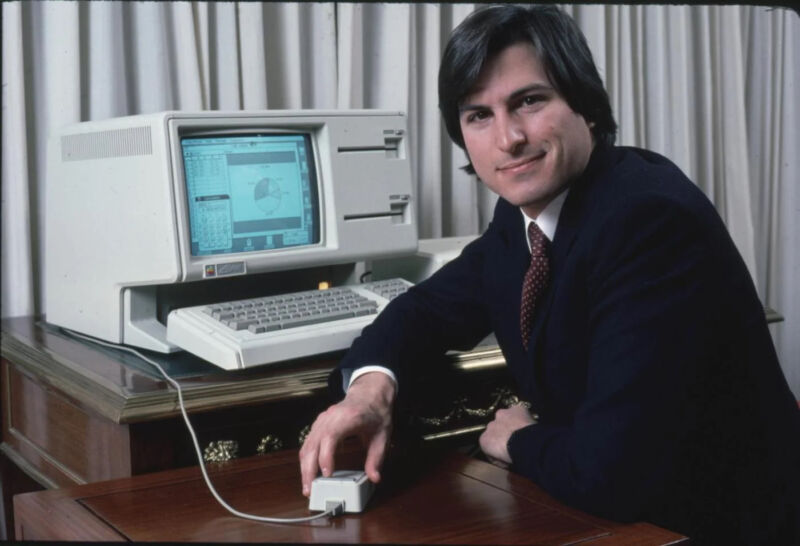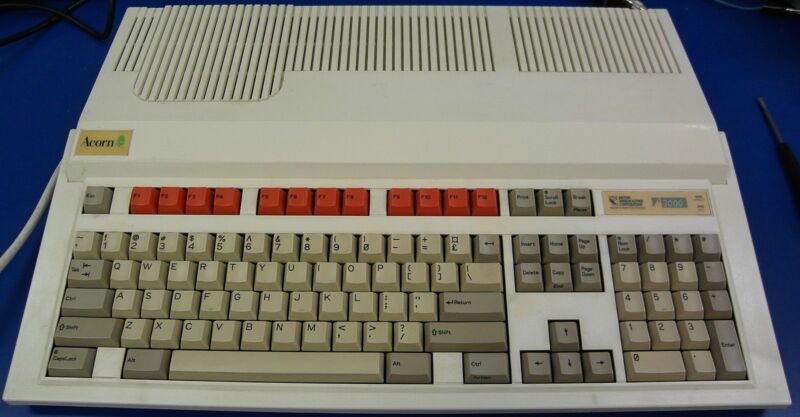
Science fiction and technology writer
Popular blog posts
Recent forum posts
Discussion Forum
Discussion forumShowing topics tagged as: Articles
My article on the history of public messaging is up on Ars Technica!
Post #: 304
Post type: Blog post
Date: 2024-04-29 15:02:37.000
Author: Jeremy Reimer
Tags: Articles

This article was deeply personal to me, because my life overlapped with so much of it.
It starts out with the earliest networked computers (PLATO, and the Arpanet) and goes through BBSes, Usenet, web-based forums, and social media. It's a wild ride.
Check it out!
https://arstechnica.com/gadgets/2024/04/first-post-a-history-of-online-public-messaging
Views: 3460
Revisiting Apple's failed Lisa computer, 40 years on
Post #: 299
Post type: Blog post
Date: 2023-01-19 21:27:36.000
Author: Jeremy Reimer
Tags: articles
A second article in less than a week! This one's about the revolutionary yet forgotten computer from Apple, the Lisa, which was announced today, forty years ago.
https://arstechnica.com/gadgets/2023/01/revisiting-apples-ill-fated-lisa-computer-40-years-on
With this second article, I had the strange feeling of being bumped off the front page of Ars Technica by... myself. My editor called it "Reimer week". It's been fun!
Views: 4061
The History of the ARM chip: Part 3
Post #: 298
Post type: Blog post
Date: 2023-03-21 16:40:22.000
Author: Jeremy Reimer
Tags: articles
The third and final article in my History of the ARM chip series is now live on Ars Technica!
Read it here: https://arstechnica.com/gadgets/2023/01/a-history-of-arm-part-3-coming-full-circle/
This article focuses on how ARM changed the world, from the iPhone to the Game Boy Advance to smartphones and Apple's new computers based on the M1 chips. It ends with a look at how ARM managed to succeed when so many other technology companies failed.
I hope you enjoy it! Please share it with your friends!
Views: 11411
The History of the ARM Chip: Part 2
Post #: 297
Post type: Blog post
Date: 2022-11-22 02:16:19.000
Author: Jeremy Reimer
Tags: articles

This morning I was happy to find that Part 2 of my History of ARM article is now live on Ars Technica. You can read it here:
https://arstechnica.com/gadgets/2022/11/a-history-of-arm-part-2-everything-starts-to-come-together
The first part was mostly a technical story of talented engineers who created something amazing. The second part is the story of how the ARM company was able to bring this technology to the world. It's a reminder that it takes both technical prowess and a focused business approach in order to succeed.
Part Three is coming next month!
Views: 8879
The History of the ARM chip: Part 1
Post #: 294
Post type: Blog post
Date: 2022-09-26 22:09:45.000
Author: Jeremy Reimer
Tags: articles

I'm excited to announce that Ars Technica has published the first part of my three-part series on the history of the ARM chip.
You can read it here: https://arstechnica.com/gadgets/2022/09/a-history-of-arm-part-1-building-the-first-chip/
If you've ever wondered how your smartphone became so smart, it's because in 1983, a tiny computer company in England decided they would do something impossible.
I had a great time writing this article. I kept asking questions about CPUs, which I've always understood only at the highest levels. For example, I knew what RISC meant, it was "Reduced Instruction Set Computing". Okay, but HOW reduced? And what does an instruction set actually do?
Diving down the rabbit hole, I ended up learning how CPUs work from first principles. I've tried to share some of that knowledge in the article. I hope you enjoy it!
Views: 5337
Remembering Apple's Newton, 30 years later
Post #: 291
Post type: Blog post
Date: 2022-06-01 18:27:35.000
Author: Jeremy Reimer
Tags: Articles

My new article made the front page of Ars Technica this week! It's about the forgotten orphan of Apple gadgets, the Newton!
This is my first article on Ars since 2018, so I'm happy to see it's getting a good reception.
Check it out!
Remembering Apple's Newton, 30 years on
Views: 2806
My article on Glitch is up on Ars Technica!
Post #: 104
Post type: Blog post
Date: 2011-11-08 10:20:08.000
Author: Jeremy Reimer
Tags: Articles

Stewart Butterfield had a dream.
He wanted to build a game that was different from anything else he had played. He wanted to start a company to build that game and then make it available to everyone in the world for free. He wanted to push the boundaries of how people play games together.
Unfortunately, his idea came in 2002, when few venture capitalists wanted to invest in making games, much less free ones.
At the time, Butterfield’s startup, Ludicorp, was running out of cash. Things had gotten so bad the company was about to sell off furniture to make payroll. In desperation, the developers took a prototype social network side-project and enhanced it so that it allowed users to upload and share photos. This project eventually turned into Flickr—and it became so popular that Yahoo purchased Ludicorp in 2005.
Butterfield stayed on at Yahoo for a few years, but his original dream still pulled at him. By 2009, venture capitalists were now tripping over each other to fund free-to-play online games, so Butterfield seized his chance. He founded Tiny Speck and set up offices in San Francisco and Vancouver.
---
It was a lot of fun for me to visit a startup game design studio and get into the nitty-gritty of the technology and people behind it. I hope you have fun reading it!
http://arstechnica.com/gaming/news/2011/11/glitch-the-battle-to-build-a-massive-multiplayer-game-without-combat.ars
Views: 7617
So who am I?
I'm a writer and programmer. I write science fiction stories and novels.
I am the writer for the upcoming documentary series Arcade Dreams.
I also write technology articles for Ars Technica.
I'm the creator of newLISP on Rockets, a web development framework and blog application.
- Email: jeremy.reimer@gmail.com
Topics
3D Modeling
About Me
Amiga
Articles
Audio
Blockchain
Blog
Blogs
Book Reviews
Book review
Comics
Computer history
Computers
Computers Microhistory
Computing
Conventions
Crypto
Daily update
Entrepreneur
Family
Forum post
Gaming
Gaming Starcraft
Gaming metaverse
Internet
Jeremy Birthday
Keats
Kickstarter
Knotty Geeks
Knotty Geeks (video)
Market Share
Masters Trilogy
Monarch
Movies
My Non-Fiction
My Science Fiction
NewLISP Blog
Novels
OSY
Operating Systems
Pets
Poll
Reviews
Science Fiction
Servers
Software
Software Operating Systems
Space
Star Gamer
Star Trek
Starcraft
Television
Testing
Toys Childhood
Valheim
Wedding Marriage
Work
Work Life
World
Writing
 RSS Feed for this blog
RSS Feed for this blog